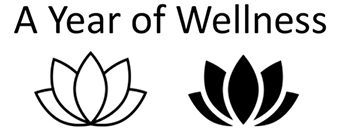Presented by the Pastoral Care Team

As part of our ongoing care for this parish as well as the community that surrounds us, we are excited to have gathered experts in a variety of wellness fields. We hope you will be able to attend one or more, and please invite friends and family who might be interested. All presentations will take place after the 10AM Sunday service.
Sunday February 8 – Caregiving: Organizing Care at Home
Lane Brown, PhD
When care in the home is the best option, arranging and managing such care can be daunting. This session provides an overview of medical and non-medical home care options, payment and reimbursement, and methods for identifying appropriate caregivers. Lane will discuss:
- Pros & cons of using an agency vs. arranging privately for home care staff
- Types of care that may be partially funded by insurance, including
- non-medical homecare sometimes called “companion care” which may encompass meal preparation, light housekeeping, laundry, and/or assistance with dressing and toileting
- Medical homecare that includes nursing care or therapy in the home may also be partially covered by insurance, including Medicare part B
- Care management companies and providers with expertise in identifying assisted living communities, such as “A Place for Mom”.
Sunday February 22 – Caregiving: Supporting Mobility
Susan Christie, PT, ATP
As loved ones experience age or disease-related disabilities, one of the most important aspects of home care is safety in mobility and movement. This includes walking, getting in/out of bed or chair, and transferring on and off a toilet or commode. When family members offer this type of assistance, it is important to consider the safety of the caregiver as well as the person receiving care in order to prevent injuries. Susan will offer ideas for improving safety in home mobility. She will discuss equipment and techniques for safe transfers and physical assistance.
Sunday March 8
Caregiving: Managing Challenges at Home – Lane Brown, PhD
and
Wellbeing: Defining Wellness – Darla Spence Coffey, PhD, MSW, FNAP
Managing Challenges: When caring for a loved one at home, challenges may arise that are difficult to manage. These can include incontinence, difficult behaviors such as anger, refusing care, perseveration, and fluctuations in mood. Lane will offer tips and ideas for decreasing the intensity of labor-intensive tasks, including methods for avoiding and managing incontinence; understanding, reducing and managing distressing behaviors; and identifying resources for self-care.
Defining Wellness: Attending to one’s own well-being is essential to do the work of our lives – whether we are employed, engaged in caring for others, and/or volunteering our time, talent and treasure. How do we define well-being? What exactly is “work-life balance”?
Sunday March 22
Emotional Well-being and the “Gifts of Imperfection”
Darla Spence Coffey, PhD, MSW, FNAP
Emotional well-being is critical to overall well-being. Our striving for perfection can complicate our ability to take care of ourselves while taking care of others. We will watch a video of Brene Brown discuss the “gifts of imperfection” and discuss how we might implement such an approach in order to be kinder and more forgiving of ourselves – thus eliminating impediments to maximizing our well-being.
Sunday April 26
Tips and Strategies to Promote Wellness
Group participation
We have all developed ways to take care of ourselves. Let’s use this final session to share with each other tips and strategies that we have learned that help us maintain our balance. Will include a “live” presentation of a strategy that works (Mindfulness – Mark Coffey).
Other topics considered in this series:
November 9, 2025
Family Mental Health: Why Are Young People So Anxious These Days?
Andrew Smolar, MD
November 23, 2025
Family Mental Health: The Developmental Arc of Marriage
Dr Ann Eichen, PhD
January 11, 2026
Seniors & Caregiving: Options in Senior Care and Residential Living
Linda Sterthous